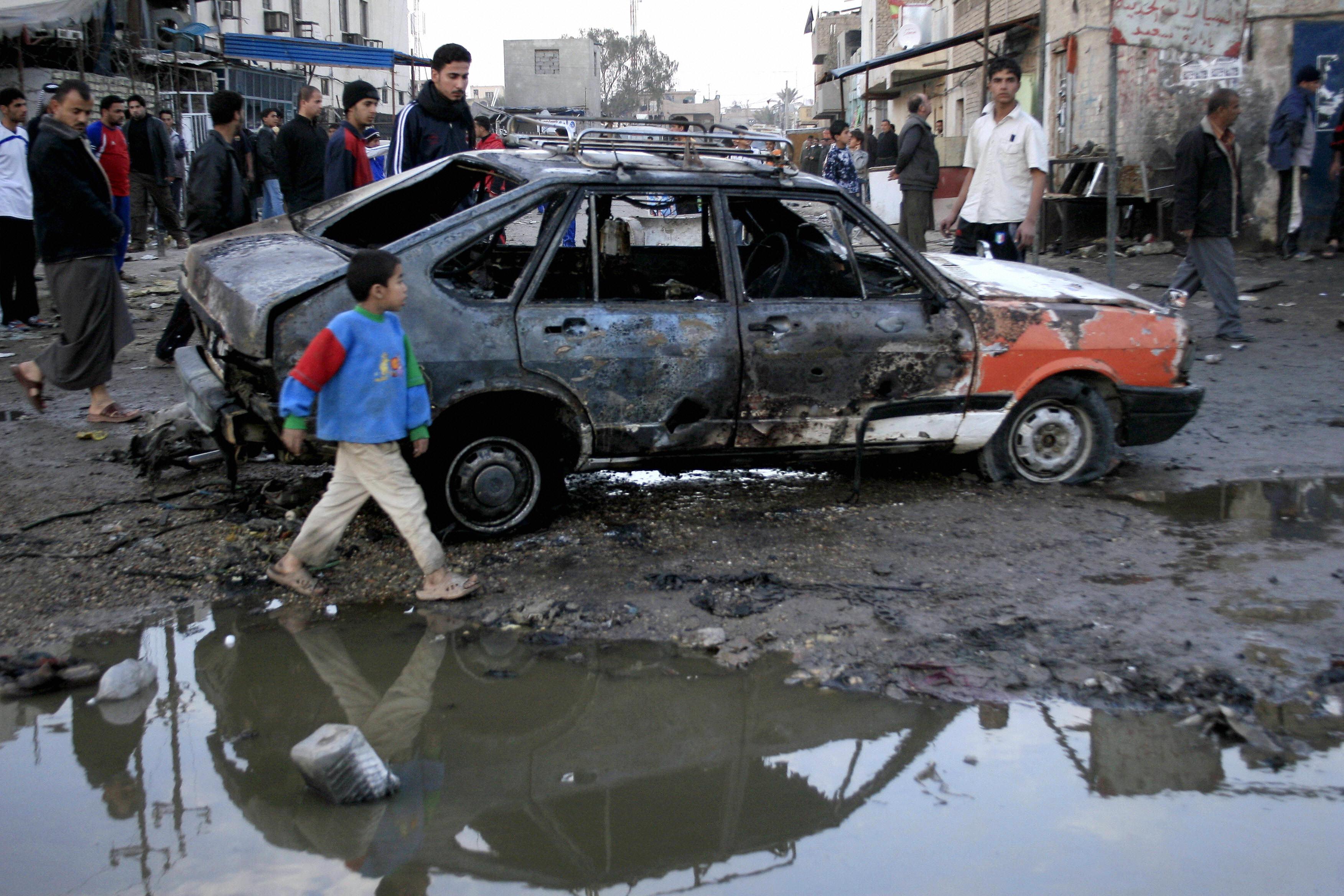State Department spokesperson Marie Harf is taking some heat over comments made this week to MSNBC’s Chris Matthews about the need for soft power in the fight against terrorism.
“We cannot kill our way out of this war,” she said. “We need in the medium to longer term to go after the root causes that lead people to join these groups, whether it’s a lack of opportunity for jobs….”
Matthews countered that this isn’t a viable strategy since “There’s always going to be poor Muslims, and as long as there are poor Muslims, the trumpet’s blowing and they’ll join,” to which Harf replied that “We can work with countries around the world to help improve their governance. We can help them build their economies so they can have job opportunities for these people.”
Coming just as the White House outlines a new set of nonmilitary plans to fight groups like ISIS, Harf’s comments were blasted by conservative critics as, in the words of Rush Limbaugh, a “left-wing syrupy embarrassingly sickening cliché.”
Harf is defending herself, noting that military commanders have said very similar things. Indeed, the idea that we must “fight against poverty because hope is an answer to terror,” was conventional wisdom even before George W. Bush said it. Barack Obama has been making this argument since he was a state senator.
Harf was not saying anything radical or even particularly unusual. But that doesn’t necessarily mean she’s right. As the security analyst Erin Simpson wrote on Twitter today, “The idea that somewhere, somehow there is one ‘root cause’ for terrorism or violent extremism or civil wars is appealing. But it’s a mirage.”
The idea of terrorists as desperate young men lacking in economic opportunity is not borne out by empirical evidence. A well-known 2002 paper by economists Alan Krueger (later an assistant secretary of the Treasury in the Obama administration) and Jitka Maleckova found that support for violence among Palestinians in the West Bank and Gaza was not any higher among those with lower living standards or levels of education. In Lebanon, participation in Hezbollah was actually associated with higher living standards and levels of education. The same was true for Israeli settlers who participated in attacks against Palestinians.
A 2012 survey in Pakistan reached a similar conclusion: Poorer Pakistanis were less likely to support militants than the middle class. The political scientists conducting the study hypothesized that “the urban poor suffer most from militants’ violent activities and so most intensely dislike them.” A 2004 study by Harvard economist Alberto Abadie, looking at country level data, found that “terrorist risk is not significantly higher for poorer countries.” Abadie found political freedom to be a more important factor: Countries in the kinda-free range had more terrorism than highly democratic or highly autocratic countries.
Some have argued that there’s a more subtle relationship: Terrorists have relatively high socio-economic status but are more recruitable during economic downturns or times of high unemployment. That’s, admittedly, a tricky argument to cram into a Chris Matthews segment. And I’m not sure that’s what Harf was getting at anyway.
As I’ve written before, the idea of poverty as a driving factor in why someone becomes a terrorist is a persistent one because the U.S. public is extremely skeptical about foreign aid to help alleviate poverty abroad and this is a way to sell it as a security priority. Similarly, fears about attacks against the U.S. homeland have driven public support for the war against ISIS, even though the administration itself has said the risk of such an attack is low.
Harf is certainly right that simply killing terrorists won’t accomplish much if instability continues to spread in the Middle East. In some cases, it could make things worse. It’s encouraging that the administration is making the case that countering violent extremism is a more complicated process. Unfortunately, it’s even more complicated than what they’re describing to the cable news audience.
